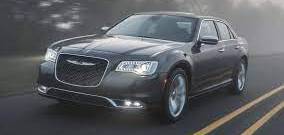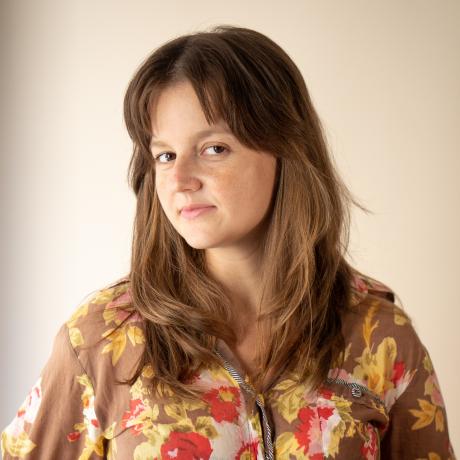
According to Mr Durães and a police report filed by his friend, the potential hitman identified the person who sent him, but only by a nickname. The police did not investigate, according to the police report, because Mr. Durães and his friend could not provide the full name of a person against whom to file a complaint.
In an interview, Lucilene Pedrosa, who heads the regional police division, said her team is waiting for the men to provide more information in order to investigate.
Government data analyzed by The Times shows the appetite for land in the region. According to figures, between January 2018 and June 2021, ranches operating in Jaci-Paraná on illegally deforested land sold at least 17,700 cattle to intermediate ranches. The buyers were suppliers to the three big slaughterhouses, JBS, Marfrig and Minerva, according to government and company data.
Almost half of those 17,700 cattle were bought by Armando Castanheira Filho, a local trader who was one of Jaci-Paraná's biggest buyers and a direct supplier to the three main slaughterhouses. The sales he made created a paper trail that concealed that the cattle came from illegal ranches.
A Times reporter witnessed such a transaction when Mr. Felipe, the rancher who admitted to engaging in deforestation, sold his 72 cattle this year. The buyer that day was Mr. Castanheira.
The Times then followed the animals. Eleven hours later, they found themselves in a Marfrig slaughterhouse.
Marfrig runs a website listing where his cattle come from in an effort to show that he sources cattle responsibly. For the July 14 expedition tracked by The Times, Mr. Felipe's ranch is not listed on the site. But the list of farms that provided cattle for the next day's slaughter includes Mr Castanheira's farm, which is located outside the reserve.
At the end of that day at the Marfrig slaughterhouse, a truck with the name of a tannery, Bluamerica, left the slaughterhouse with skins. Bluamerica is a tannery that supplies Lear, the manufacturer of automotive seats.
Mr. Castanheira has confirmed that some of the cattle he buys from the reserve go straight to the slaughterhouse, not spending time at his ranch, although documents show they went through his own farm first. He denied having done so to hide the origin of the cattle.
"I'm not doing this for 'whitening' anything," said he wrote in a text message. He said his intention was simply to profit from the difference between what he pays for each animal and what he can get at the slaughterhouse.
Marfrig, Minerva, and JBS said they did not send trucks to pick up livestock from the Jaci-Paraná reserve, or anywhere other than their direct suppliers. Lawyers for Marfrig also filed a report with the police which lists the events described by The Times, calling them "potential offenses of a criminal nature ."
Mr. Castanheira now maintains that the Times reporter witnessed the only instance of this type of transaction on his part. The three meat packers said they have now excluded Mr. Castanheira from their list of suppliers.
Two of Bluamerica's owners, companies named Viposa and Vancouros, said their suppliers are subject to regular audits and acknowledged the challenges of tracing indirect suppliers. Both companies said they were working with the World Wide Fund for Nature, an environmental group based in Switzerland, to improve their systems.
Overall, an analysis of government data on livestock movements in Jaci-Paraná and neighboring areas between 2018 and 2021 identified 124 transactions that show signs of livestock laundering, experts say. Transactions show that at least 5,600 cattle were transferred from farms in the reserve to middlemen who on the same day sold cattle to the three main slaughterhouses.
Holly Gibbs, a University of Wisconsin-Madison geographer who has been researching agribusiness in the Amazon for a decade, said that while legitimate middlemen often buy and sell livestock on the same day, so does that transactions are not monitored “is a huge loophole”.
“They bring animals that have been raised in a protected area into national and international supply chains, ” she said.
The supply chain, from the ranch to the auto showroom, is complex. Hides from Minerva and JBS slaughterhouses go to tanneries owned by JBS, while hides from Marfrig are mainly processed by Vancouros and Viposa, according to company data and interviews. Trade data compiled by Panjiva, the supply chain research unit of S&P Global Market Intelligence, shows seat maker Lear, based in Southfield, Mich., Is the largest U.S. buyer of skins from JBS, Vancouros and Viposa.
Last May, the illegal herders of Jaci-Paraná won a major victory. The governor of Rondônia enacted a measure that reduced the size of the reserve by 90%.
The law, which prosecutors are fighting in court, paves the way for pastoralists on illegally deforested land to legalize their businesses. Critics of the law have said it could set a precedent for further deforestation in other protected reserves.
Whatever the outcome of this legal battle, Mr Durães, the rubber producer, has said he has no plans to leave his piece of forest. Livestock grazing is now barely a kilometer from his wooden two-room house.
Living among the mighty trees is the only existence he knows. And staying, he said, is "the only way to keep the forest standing."
"Transparency" with a flaw
In the Vancouros tannery in southern Brazil, the incessant sound of leather skins dropping into dozens of 11-foot wooden barrels is interrupted by the clicks of a pneumatic marker as each individual hide is pierced with a seven-digit code that traces its origin.
Clébio Marques, the tannery's business manager, ripped a damp blue skin from a pile, pulled out his phone, and typed his code into a website his company created for clients like Lear. Immediately appeared the details of the supplier of this specific skin.
“All of our leather is traceable,” he said. “It's not necessary, nobody asked for it, but we felt that the market needed more transparency. "
But Mr Marques was then faced with the conclusion that one of his largest suppliers, Marfrig, was purchasing livestock from suppliers whose transactions showed signs of livestock laundering. “I'm surprised,” he said. “We expect the main product to be legal. "
He stressed, however, that the oversight of his own business was not at fault. "We must trust to documents provided to us, as our audit is based on their system," Mr. Marks said.
The three main slaughterhouses have systems designed to track the last farm from which the livestock they slaughter originate. However, all three have the same flaw: They do not explain the fact that cattle usually do not spend their entire lives on a single farm. Therefore, they do not consider that a direct supplier can sell livestock that has been raised by someone else, on land that has been illegally deforested.
The tracking systems were created after a 2009 Greenpeace report that linked Brazilian beef and leather suppliers to illegal deforestation. Today, the Big Three say they have zero tolerance deforestation policies for all direct suppliers.
The three main slaughterhouses publish their tracking data online. JBS is the most detailed; the other companies omit the precise location of the ranches. It was The Times' analysis of this JBS data for 2020, the most recent year available, that indicated that the company's suppliers included ranches that may have violated government rules designed to prevent deforestation. and the displacement of indigenous peoples.
JBS stated that all of its suppliers were in compliance at the time of purchase. Marfrig and Minerva, meanwhile, said they shared much information about their direct suppliers that allows Brazilian law on data privacy.
As part of this process, tanneries rely on an industry-funded body, the Leather Working Group, to certify their compliance. The group gave its top rating, "gold," to all of the Amazon-based tanneries that supply leather to Lear, which means they adhere to environmentally sustainable practices.
In a statement, the group said it was working to improve its traceability protocols, but that "due to the complexity of agricultural systems in Brazil and the lack of publicly accessible databases, there is no still, unfortunately, no easy solution to this situation ”.
JBS, Marfrig, and Minerva have all made public commitments to improve tracking of ranches that sell livestock to their direct suppliers. JBS said it will trace a layer of indirect suppliers by 2025. Marfrig has promised to trace all of its indirect suppliers to the Amazon by 2025 and Minerva has said it will have fully traceable supply chains in North America. South by 2030.
"Only a traceability from birth to slaughter for individual animals will be sufficient to ensure that there is no deforestation in these high-risk supply chains in the Amazon," said Rick Jacobsen of Environmental Investigation Agency, the nonprofit group.
Br zil to parking imp Americans
The leather seats of the Cadillac Escalade SUV, described by a Washington State dealer as "a luxury hotel on wheels," can jack the price of General Motors' top model to over 100,000 $.
The Escalade is one of the many vehicles sold in the US that uses leather seats and other fittings dd Lear, a company that controls about a fifth of the global market for automotive seats.
Neither Lear nor General Motors provide precise labeling as to the provenance of the leather that adorns car seats. Lear's Brazilian leather imports have surged over the past decade, driven by a surge in leather sourced from JBS, according to data from Panjiva, the supply chain data company. Last year, Lear was America's largest importer of leather and hides from Brazil, importing around 6,000 tonnes, most of it from JBS, according to data from Panjiva.
Heavy-duty vehicles and large SUVs generate significant demand and help fuel strong growth in the leather trim sector in the automotive industry. For many buyers, leather "is a luxury brand and generally adds significant resale value," said Drew Winter, senior analyst at Wards Intelligence, an automotive research company.
Raymond E. Scott, Managing Director of Lear, highlighted the importance of luxury vehicles during a presentation to investors in June. The company owns nearly 45% of the luxury market, he said. He also insisted on the fact that the growth of Lear's seating business was driven primarily by the full-size vehicle segment of the General Motors brand, a range that also includes the Yukon, Chevrolet Tahoe and Suburban.
In Brazil, "100% of our suppliers use geo-fencing" (a technology that uses GPS to establish a virtual fence) "to ensure that they do not buy animals from farms involved in the deforestation, "said Lear in a statement in 2018.
However, the Times's findings in Brazil indicate that Lear suppliers did not have the capacity to track all cattle in this way.
Lear said he requires all vendors to adhere to a no-deforestation policy, which prohibits the use of any material from illegally deforested areas or from indigenous or other protected lands. According to documents filed by the companies, Lear's other biggest customers are Ford, Daimler, Volkswagen and Stellantis, from the merger of Fiat Chrysler and French car maker Peugeot and Citroën.
General Motors said its supply chain was "built on strong, transparent and trusting relationships." Ford said it holds itself and its suppliers to ambitious standards and "has done well in many areas and can improve in others ." Volkswagen said it was working on better tracking of the supply chain to the farm.
Daimler said a small percentage of its leather comes from Brazil. Stellantis said it shares its concerns about traceability and is actively working to confirm the location of tanneries and farms in its supply chain.
Last year, about a third of the 15,000 tonnes of leather imported into the United States came from Brazil, which recently overtook Italy to become the largest exporter of leather and hides to America. Much of this increase can be attributed to the auto industry.
The bulk of JBS to Lear's leather shipments in the United States travel from São Paulo to Houston, according to Panjiva trade data. From there, much of it is trucked across the Mexican border to one of the 24 car seat factories operated by Lear in Mexico, where workers cut the skins and sew them into seat covers.
The leather then leaves and crosses the border by truck. From January 2019 to June 2021, Lear factories in Mexico have shipped at least 1,800 tons of leather in the US, according to data compiled by trucking Material Research.
Its final destination: Lear's nationwide facilities. They tend to be located closer to final auto assembly plants, making it easier for the company to match color and other specifics to models that roll down the vehicle assembly lines.
One of those destinations is General Motors' plant in Arlington, Texas, a sprawling 250-acre campus where the automaker produces some of the company's largest and most luxurious SUVs, including the Escalation. Auto workers assemble approximately 1,300 SUVs per day for sale in the United States or for export.
Sources
- The New York Times
- Manuela Andreoni - Brazilian journalist.
Manuela Andreoni - Brazilian journalist.
-  Hiroko Tabichi - New York Times, New York-based climate reporter.
Hiroko Tabichi - New York Times, New York-based climate reporter.
- Albert Sun - reporter for the New York Times
Posted on 2021-11-19 10:09








Comments